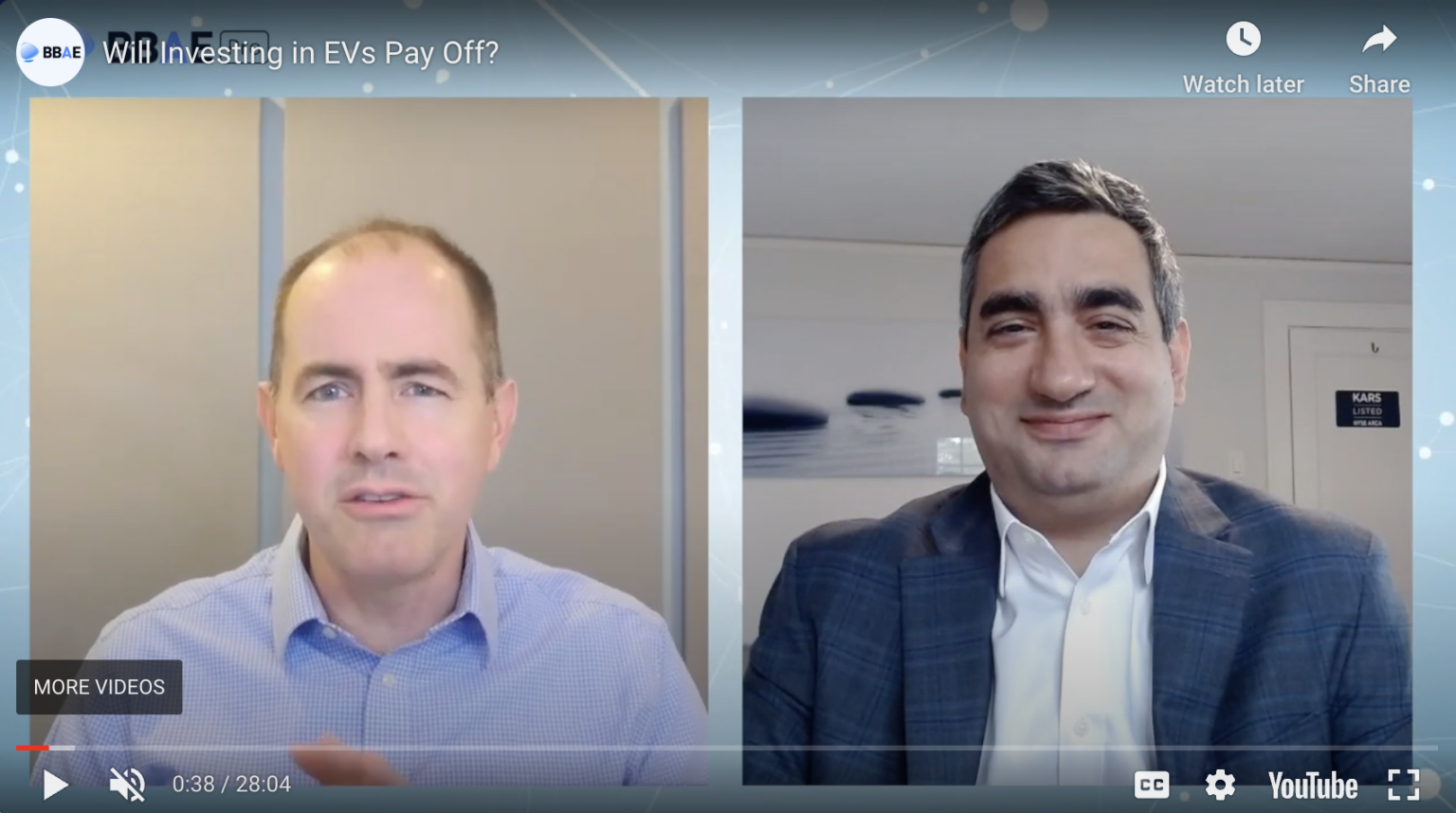Short answer: watch my video below with KraneShares’ Anthony Sassine.
Longer answer (read it all before you judge):
If there’s a dumbest idea in investing, it goes something like this: so-and-so trend is going to be hot, so let’s invest in it!
OK. I’ve known people who’ve invested like this and made more money than I have, so perhaps it’s not the dumbest idea in investing, but if I were to give you any of the following consumer-side analogs…
- Rihanna is coming to town – so let’s sit in the front row to get the best seats! (Maybe we can email her to see if she wants to meet us at, like, Denny’s, too.)
- The newest Ferrari is going to be so fast – certainly faster than my Subaru, so let’s go buy one!
- The hardest-to-get-a-table-at restaurant in town just got another Michelin star – why don’t we just drop in tonight?
…you would tell me that I’m missing the demand side of the equation. Yes, these are all desirable things, but these are desirable things that everybody else desires, too – very much – so either the price will be too high or availability will be limited.
Not just that: if you read my Forbes article on AI, you remember that new industries have a tremendously high failure rate, too: America’s had more than 2,000 traditional car companies come and go.
How many EV makers will fail?
Investors need more than a hot trend. They have to consider the dud-to-winner ratio.
It’s fully possible to lose your shirt (or at least a large part of your investment) investing in a “hot” industry – in fact, it’s arguably closer to the norm than the exception.
Back to EVs. EVs, for all the battery supply chain and environmental-destruction-in-uncaring-hostile-regime woes, EVs are the trend that everybody wants to see happen. The Environmental Defense Fund estimates the sector will see $626 billion of investment globally through 2030.
Enter Anthony (conceptually).
Anthony Sassie, CFA, heads the Middle East and North Africa division at ETF company KraneShares, where he’s also a Director and Senior Investment Strategist. He’s also involved with the KraneShares Electric Vehicles & Future Mobility Index ETF (NYSE: KARS).
Obviously, investing in an EV fund instead of cherry-picking individual stocks alleviates the problem of knowing exactly who the winners will be in a crowded field. But in the case of EVs, will the aggregate amount the winners win offset the aggregate amount the losers lose?
That’s the key question. If EVs are going to make you a fortune, you want in. If it’s an overcrowded play, then you don’t.
Anthony’s job may be to talk his book, but he believes that because the KARS index skips the relative newcomers (which invariably have the highest failure rate) and instead hold relative incumbents, EV fund investors (at least in his fund) are more protected. Anthony not only believes that investing in the EV industry in aggregate will pay off (KARS has matched the S&P 500 year to date, underperformed it by more than 20 percentage points over the past year, and by about 10 percentage points over the past 10 years), but that at current valuations, EV companies are attractively priced.
While some of you may not be surprised to hear an analyst with an EV fund intimate that EVs stocks are a good investment now, I say to you: hear Anthony out. He’s one of the most knowledgeable EV industry analysts around. I think you’ll learn something. I certainly did.
James
Neither James nor BBAE has a position in the KARS ETF.














